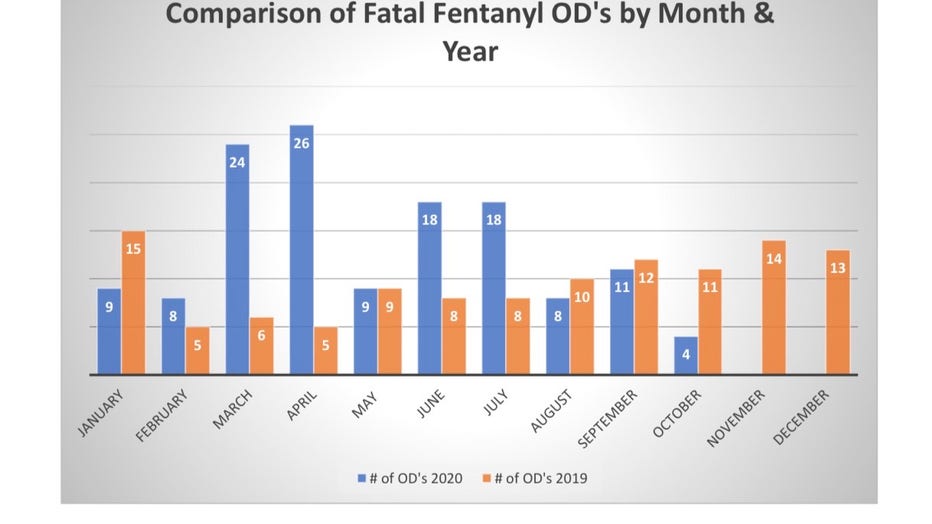King Co. public health officials sound the alarm on spike in fentanyl overdoses

Rise in deadly opioid overdoses
King County is on track to see a record-breaking number of fentanyl related overdoses this year.
With two months still left before the end of the year, King County is on track to see a record-breaking number of fentanyl-related overdoses.
Public Health - Seattle King County is sounding the alarm over the spike in overdoses and warning communities to be aware of counterfeit pills making their way into Western Washington.
New data shows that in 2019 King County saw a total of 116 fentanyl related overdoses, compared to 135 fentanyl overdose already reported as of October15th of this year.
Health experts say the fentanyl overdoses are disproportionately impacting teens and young adults, many of whom think they’re buying legitimate prescription pills off the street, but end up buying counterfeit pills laced with fentanyl.
RELATED: Lynnwood couple arrested after police find $19M worth of fentanyl inside home
“More and more of these pills are making their way into our communities,” said Brad Finegood, an overdose specialist with Public Health - Seattle King County. “As these fake pills have happened that look real and taste real, you can’t tell the difference and the risk of overdose has shot through the roof.”
In 2015 fentanyl related deaths only made up 1% of all overdoses in the county, compared to 40% in 2020.
The graph below breaks down the number of fentanyl related deaths by months this year in King County, compared to last.

Public Health says it is addressing the opioid epidemic by working with the community to prevent overdoses and increasing access to treatment.
Harm reduction services and overdose prevention resources offered by Public Health Seattle King County are available here.
Other resources like the Washington Recovery Helpline are available for families in need.
Cities across Puget Sound are taking part in a nationwide effort to fight against the ongoing opioid epidemic and cut down on prescription drug abuse on October 24th.
The DEA National RX Take Back Day allows people to drop off any unwanted or unused prescription pills at a location to be safely discarded.

